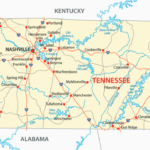Mark Meaney, executive director of the Center for Ethics and Social Responsibility at the Leeds School of Business at the University of Colorado Boulder, reviewed the case study for Reuters Health.
The AUR’s process “was rigorous and based on respect for their own code of ethics,” Meany said. “They concluded that they could not be complicit in discriminatory law and that they would be complicit if they held their annual conference in Tennessee.”
Meaney observed that when organizations take stances on ethical issues, they can sometimes effect political change.
“There are instances where because of the amount of money an association brings to a city, that when that association threatens to pull out because of the discriminatory nature of laws or policies of a city, that city revisited those policies and . . . changed them,” he said.
Although the AUR board was able to agree on a course of action, not everyone in the organization supported the decision.
At the relocated annual meeting, the group organized a panel discussion to review the issue.
“It was a lively discussion,” Norbash said. “We talked about the value of boycotting and what it actually achieves. Sometimes it’s not as much as you anticipate, but at least it initiates a dialogue.”
Reference
- Mainiero MB, Omary RA, Norbash AM. Moving a National Medical Meeting in Response to California’s Anti-Lesbian, Gay, Bisexual, and Transgender Discrimination Travel Ban. J Am Coll Radiol. 2019 Apr 30. [Epub ahead of print]


